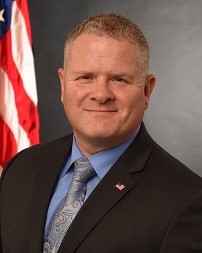 This Saturday is World Elder Abuse Awareness Day (WEAAD), when people all over the world voice support for the rights and dignity of elders and opposition to the abuse, neglect, and exploitation of older adults.
This Saturday is World Elder Abuse Awareness Day (WEAAD), when people all over the world voice support for the rights and dignity of elders and opposition to the abuse, neglect, and exploitation of older adults.
WEAAD is part of a global movement for “elder justice” that asserts the fundamental dignity and equality of older adults. Elder justice requires us to develop systems, approaches, and programs that prevent abuse, protect people from abusive situations, and support those members of our community who have experienced abuse to help them recover.
Abuse, neglect, and financial exploitation are not the inevitable consequences of growing old. We all have a role to play in changing how we talk about elder abuse in this country and around the world. Respecting the dignity and rights of people of all ages is a core American value, and a principle built into many American laws. For example:
- The Elder Justice Act established programs and initiatives to strengthen the federal response to elder abuse, promote elder justice research, and support state Adult Protective Services (APS) systems. If you suspect elder abuse, neglect, or exploitation, contact your local APS office.
- The Older Americans Act (OAA) created programs and services that help older adults stay healthy and engaged in our communities. You can connect to nutrition, caregiver support, legal assistance, and other OAA programs through Eldercare Locator or by calling 800-677-1116.
- The Nursing Home Reform Act established a “Resident’s Bill of Rights” for people in most long-term care facilities. It includes the right to privacy, to participate in all aspects of care, to complain without retribution, and to visits from friends and medical providers. If you believe your rights, or the rights of a loved one in a long-term care facility, are being violated, contact your local Long-Term Care Ombudsman.
- The Americans with Disabilities Act protects the civil rights of people with disabilities of all ages and helps make our communities more accessible and age-friendly. State Protection and Advocacy agencies inform and empower people with disabilities by investigating suspected abuse and neglect, and providing free legal representation and support for clients.
Our society is like a building. Just as buildings need strong supports and secure beams to remain strong, our society needs solid “social” beams so that we can all participate fully in our communities, living free from abuse as we age. As we commemorate World Elder Abuse Awareness Day, I hope you will join me in lifting up the voices of survivors, and taking action, such as engaging with the older people in your life, empowering members of your community with information, involving students and young people, or by speaking out.
No comments:
Post a Comment